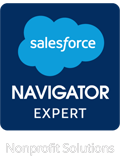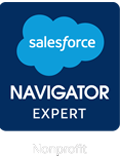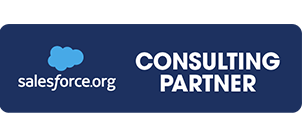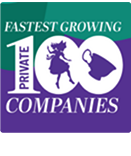Be Prepared: 5 Things You Should Bring to Your First Meeting with a CRM Consultant
During the pandemic I've spent a lot of time dreaming about my next big adventure. I’ve looked at flights and I’ve spent hours researching travel destinations.
But, as much fun as I’ve had dreaming about traveling, I’ve also had to consider the practical side of things: When (if ever) can I go? How much do I have to spend? Who will go with me? Even though these questions aren't particularly exciting, they actually help with the decision-making, and they mean that I'll enjoy the actual time traveling as I won't have as many surprises.
In much the same was as you prepare or plan for a holiday, so too should you prepare for a Salesforce implementation. By answering a few basic questions, the team at Idealist Consulting will better be able to guide you towards a system and a process that works not only for your use case, but also for your budget and timeline.
Here are the top five things you should consider before you meet with a CRM Consultant:
1. Why now?
There are good and bad reasons as to why a project did not start sooner. If it did, but you’re circling back, consider what happened before and what you learned from it to bring you to this point.
As consultants, we have opinions about this, naturally. “Good reasons” can typically be addressed more quickly because circumstances have changed. For example, you've had an increase in the CRM project budget, there’s new leadership, or you do not have internal Salesforce skills and realized you need outside help.
Whereas “bad reasons” are less tangible and may need you to do a bit more legwork. For example, you didn't have an executive buy-in or there were internal political disagreements.
Knowing why now is the right time can help you and your consultants discover potential yellow or red lights that may need to be addressed. It can also shine some light on how your organization makes decisions and the significant factors driving this work.
2. Identify your team and gather buy-in
In order to gather and prioritize requirements effectively, you’ll need to know who will assume the necessary project roles at the very beginning of your project. Additionally, you’ll need to engage leaders and their key staff in every department that is impacted by this project to make sure you have buy-in before you begin.
Consider who will fill these roles:
- Project Lead/Project Manager: The main point of contact who will communicate regularly with the consulting partner and is empowered to make key decisions on the CRM project
- Executive Sponsor: An executive that has a vested interest in project success
- Champion: A person that will help you internally advocate for project success
- Stakeholders/ End Users: Anyone else from your organization who needs to be kept up to date with project status updates and changes; this could include board members, Salesforce admins, or senior management.
To have a successful project, you not only need people to support the project but also be in alignment with project goals. Have a conversation with your team about who will fill these roles and manage expectations about the time commitment required for an implementation project. The consultants involved can’t work alone - active engagement from the client team is one of the keys to a successful project.
If you find your leadership isn’t fully on board, let’s discuss the situation and evaluate whether we can help you build a plan to sell your internal team on.
3. Prioritize Your CRM Requirements
Know what is truly important to you. If you’ve been itching to find a better way to do a routine task, now is the time. This undertaking is an opportunity to improve workflows and processes, so let’s get all the ideas on the table to determine what should take precedence.
Have some “need nows” and also some “would be nice to haves” We can work with you to approach your project in phases that are digestible both for your budget and to support adoption.
4. Know your timeline
You know your “why now,” but do you know when you want to go live with your Salesforce instance? Why then? Often key events are driving the timeline or timeframes when your team is particularly busy and unable to participate in the implementation. Is there flexibility?
Coming to your consultant with a clear idea of when you want to kick-off your project and when you want to go live will help us understand how quickly we need to move through the sales process as well as how we can manage expectations around how long it will take to implement your new CRM.
5. Know your CRM budget
Let's get real: Hiding your budget does not get you a better deal. Much like planning a trip, your Salesforce instance will have many options. It goes without saying that the more you spend, the more you will get. The variation in pricing among reputable vendors is not likely to exceed 15%, so at best, you are only wasting time by hiding your budget.
So, what do you do if you have no idea how much to budget for a CRM deployment? First, evaluate your needs by looking at your project’s total cost of ownership. Next, ask peers in your industry what they have spent on similar projects. Finally, check out our comprehensive budgeting whitepaper. This resource helps you determine both the tech and human side of your project, plus it comes with a handy interactive worksheet to help you get started.
Hopefully, you feel more prepared for this adventure, be it working with us to implement Salesforce or to optimize your current usage. We are here to support you through this process and walk with you along the way.
Ready to get started? Contact me, and we will get to work!
Photo by Annie Spratt on Unsplash
















